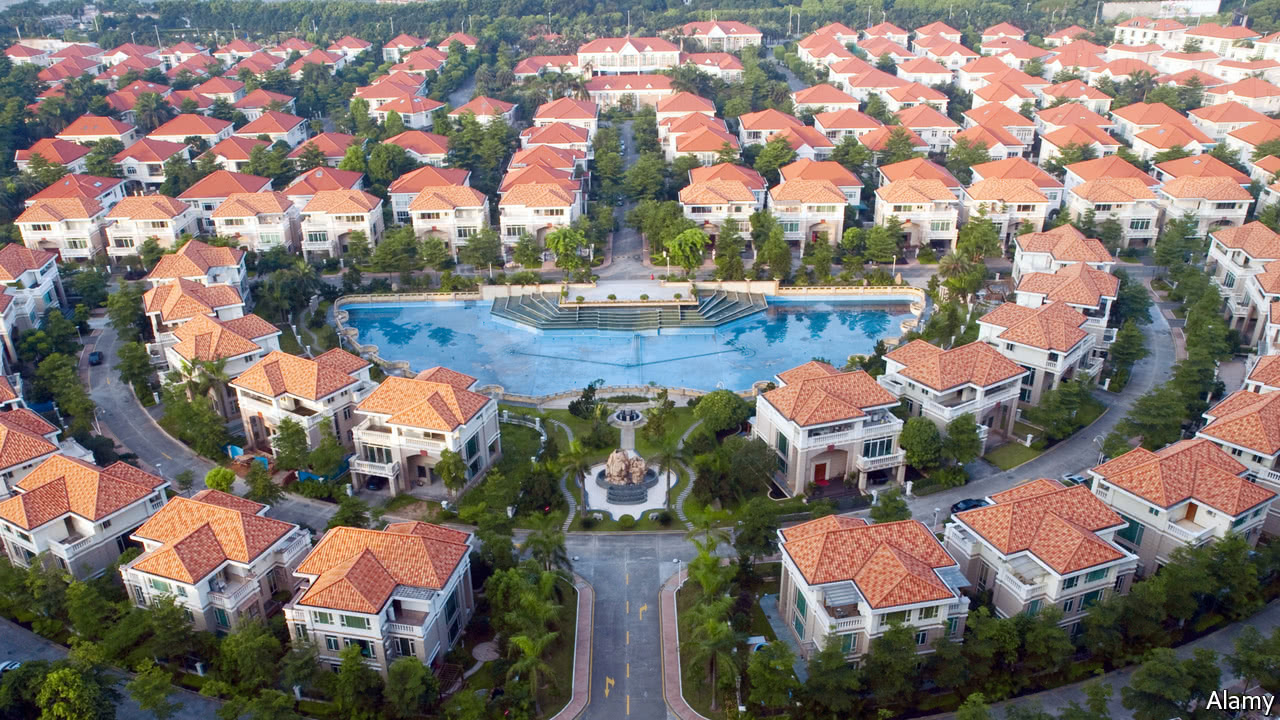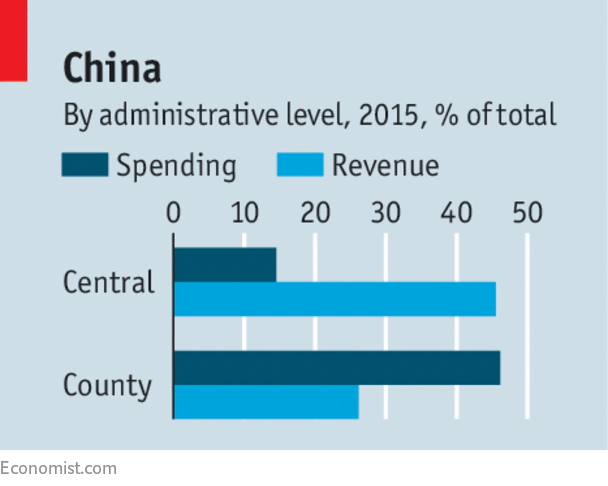Muddled model
Local-government finances in China are a dangerous mess
The best fix is a political one

AS CHINESE officials admit, one of the biggest threats to the country’s financial stability is a reckless build-up of local-government debt. What they are less keen to admit is that local governments’ thuggish behaviour, such as grabbing land to sell to developers, and failing to provide the services expected of them, has become a cause of unrest.

One reason local governments in China are dysfunctional is the way their finances work. They have very limited tax-raising powers of their own. Issuing bonds requires tricky high-level approval. Much of what they raise has to be handed over to the centre, which then redistributes money back to the provinces—supposedly according to their needs. To see how well that works, compare the shabby state-run schools and hospitals of rural counties with their smart counterparts in wealthy cities. No wonder local officials often turn to dodgy ways of generating cash, such as using shadowy “financing vehicles” to borrow money from Banks.
At the root of all this is disharmony between central and local governments. You might think that, in China of all places, the centre reigned supreme. At a Communist Party congress last month, its leader, Xi Jinping, acquired even greater power by filling jobs with his allies. Yet local governments will not always heed him, even with his new clout. True, they will put on a show if it does not cost much—as when officials from the sycophantic government of Henan province went to pay homage to a Paulownia tree planted by Mr Xi, who had urged delegates at the congress to “follow the leadership core”, ie, him. But do not expect Henan to leap into action to honour Mr Xi’s pledge at the congress to “improve community-level health-care services”. Where is the money for that?
In the coming years, local governments will get only sulkier. The central authorities are suppressing the murky financing vehicles they have used to circumvent restrictions on borrowing. Less land is readily available for local authorities to seize and sell to developers. As the economy slows, the tax take will grow more slowly, too.
Taxation, with representation
The central government is looking for remedies. It is working on a crucial one: to clarify which level of government is responsible for what spending, so as to avoid the common problem of buck-passing. But it is dithering over another good fix, the introduction of a property tax. Local governments around the world rely on such a levy, based on the market value of homes.
China’s government is fearful of upsetting middle-class homeowners. Local officials worry that a property tax would expose their possession of ill-gotten luxury villas, since it would involve setting up a database of who owns what.
To make sure local governments manage their budgets wisely, more controls will be needed. Mr Xi hinted at what this would mean with his admission at the congress that demands for democracy were “increasing by the day”. He did not mean the multiparty kind, although some people do want that. Instead Mr Xi was acknowledging that the citizens want a greater say. He is right.
Since 2014 governments at every level have been required to publish their budgets. How about going a step further? Local legislatures, like the national one, are rubber stamps. Mr Xi should resume an experiment that his predecessors briefly toyed with, and allow independent candidates to stand for election to them. That would give citizens a long-stifled voice. It might even help ensure that their money is spent well.
0 comments:
Publicar un comentario